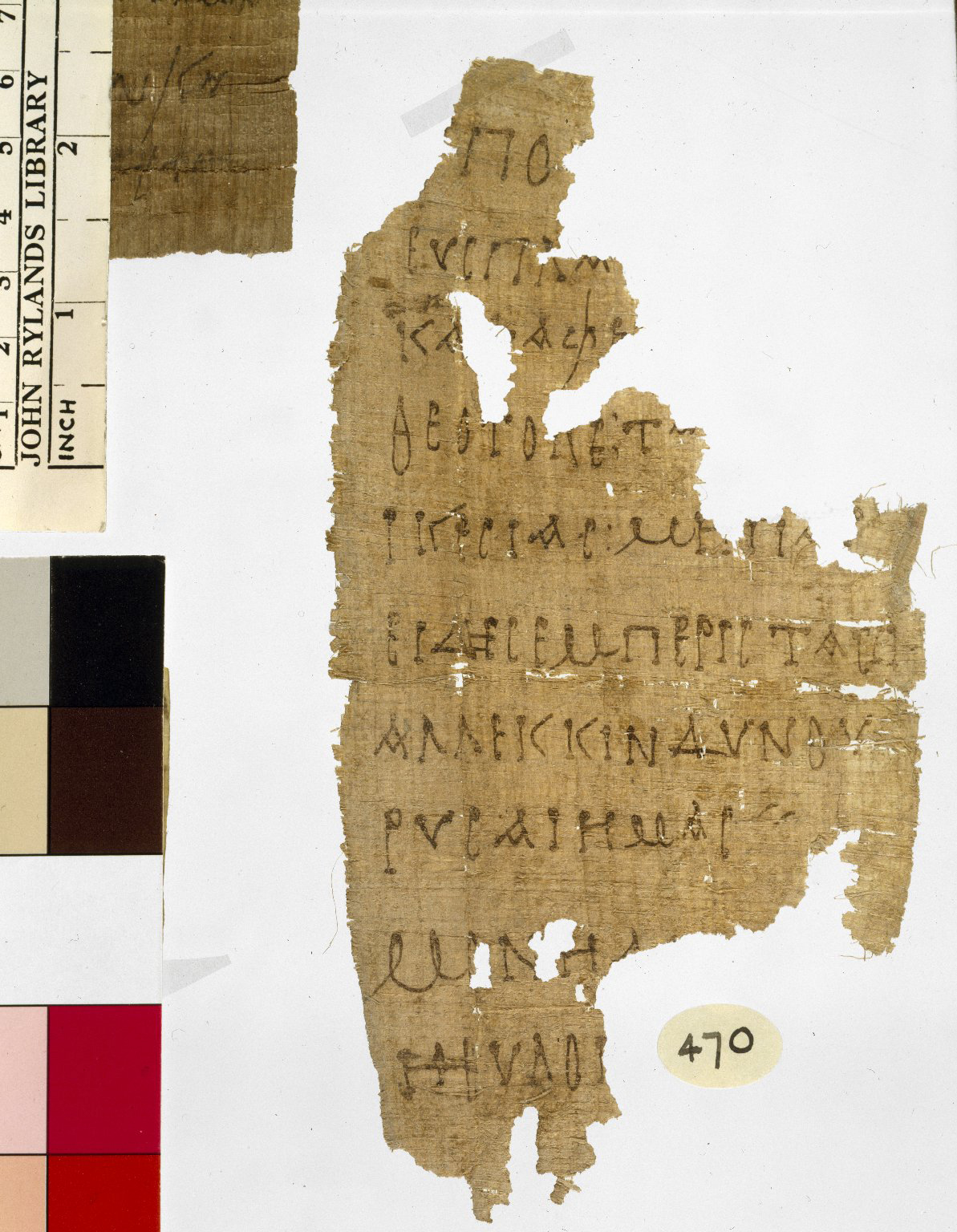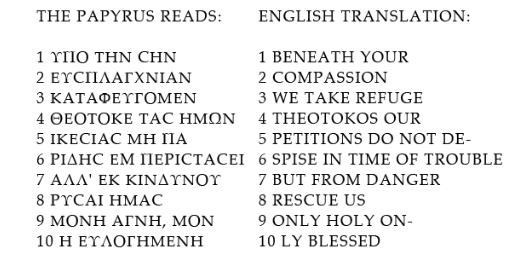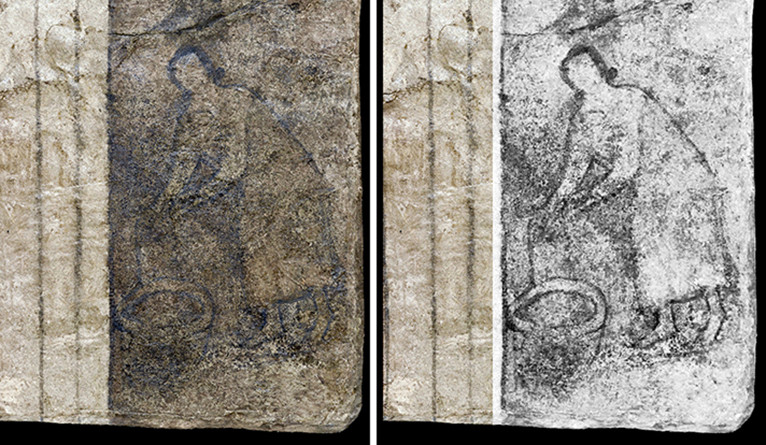It is from the year 250, and is written in Greek.
Lenten Campaign 2025
This content is free of charge, as are all our articles.
Support us with a donation that is tax-deductible and enable us to continue to reach millions of readers.
The earliest known Marian prayer, like the Gospels themselves, is written in Greek. That is why, in it, the Virgin Mary is called Θεοτοκος, “theotokos,” the “Birth-Giver of God;” in sum, “the Mother of God.” That in such early prayer the Virgin Mary is already referred to with this title is remarkable, both from a historical and a theological standpoint.

This prayer, as explained on Trisagion Film’s Website, was “found on a fragment of papyrus that dates all the way back to approximately AD 250,” only a couple of centuries after the death and resurrection of Christ, approximately a century before Constantine and the Edict of Milan but, more importantly, two centuries before the Third Ecumenical Council, the Council of Ephesus, in which the Virgin Mary was for the first time officially proclaimed “Mother of God,” Theotokos.
In 1917, the John Rylands Library in Manchester, England, acquired a large panel of Egyptian papyrus, written in Koine Greek (the Mediterranean lingua franca in which the Gospels were written). The prayer is to be found in the fragment labeled number 470, and it appears to be from a Coptic Christmas liturgy (maybe Christmas Vespers), although this fragment might also be a private copy of the prayer for personal use.
The prayer reads:

Make sure to visit the slideshow below to discover the nine oldest images of the Virgin Mary.










